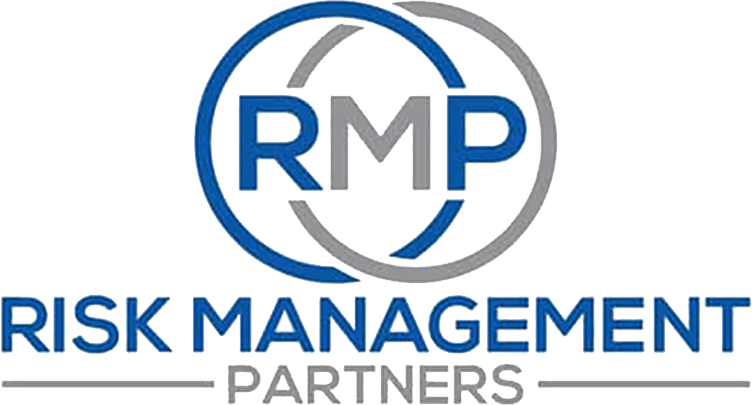I don’t know how many of you have been watching the news or hearing through social media, but yesterday, southern Colorado Springs and Falcon was absolutely flooded. I (RMP’s marketing best friend) was caught down at Peterson Space Force Base just yesterday, driving through streets that looked more like rivers. I had never been in a situation like it before. It was scary, I felt unprepared, I was scared my car’s engine would be flooded. Cars all around me were stalled, water was up to car doors. Luckily I was able to get off base before things got really bad!
It’s so important to be prepared for unexpected situations, especially when it comes to natural disasters like flash floods. Flash floods can occur suddenly and pose a significant threat to both life and property. By knowing what to do and having a plan in place, you can stay safe during these challenging, unpredictable events. This is what prompted me to discuss what you should do in the event of a flash flood, being in such a situation just yesterday. So, let’s dive in and learn how to navigate through these situations with confidence.
Stay informed and be prepared:
Being well-informed is the first step in staying safe during a flash flood. Stay updated with local weather reports, especially during periods of heavy rainfall or when flood warnings are issued. You can tune in to local radio or television stations or use reliable weather apps on your phone. Additionally, have an emergency kit ready, including essential supplies such as non-perishable food, water, batteries, a flashlight, a first aid kit, and a battery-powered radio. It’s also a good idea to keep important documents, medications, and emergency contact information in a waterproof container. By staying informed and prepared, you’ll be better equipped to respond effectively in case of a flash flood.
Seek higher ground:
If you find yourself in an area prone to flash floods or if a flash flood warning is issued, it’s crucial to seek higher ground immediately. Move to higher elevations, preferably to a sturdy building or a designated evacuation center. Avoid low-lying areas, such as valleys, ditches, or basements, as these can quickly become flooded. Remember, even shallow water can be powerful enough to sweep away vehicles or individuals. If you’re outdoors and can’t reach higher ground in time, climb to the highest possible point and wait for rescue. Never attempt to cross a flooded area on foot or in a vehicle. Your safety is paramount, so always prioritize seeking higher ground and staying away from flood-prone areas. Yesterday, when I was trying to get off of Peterson, the only way I was able to get to the one open exit was to drive up the hill through residential areas until the water was finally low enough to get back onto the main road.
Avoid contact with floodwater:
Floodwater can be contaminated and pose various health hazards. It may contain debris, sewage, chemicals, or other harmful substances. Therefore, it’s crucial to avoid contact with floodwater whenever possible. Don’t attempt to walk or drive through flooded roads or areas. The depth of the water can be deceiving, and it’s difficult to determine the strength of the current. Even a small amount of fast-moving water can sweep you off your feet. Additionally, if you come into contact with floodwater, wash your hands thoroughly with soap and clean water as soon as possible. If you have any open cuts or wounds, clean them thoroughly and seek medical attention to prevent infection. Remember, your health and well-being are essential, so always exercise caution and avoid contact with floodwater.
Stay connected and await official instructions:
During a flash flood, it’s crucial to stay connected with local authorities and follow their instructions. Listen to emergency broadcasts for updates and information on evacuation orders or shelter locations. If you have access to a phone or the internet, use social media or official websites to stay informed. Follow the guidance provided by local authorities and emergency management agencies. They have the expertise to make informed decisions based on the current situation. If instructed to evacuate, do so immediately and follow the recommended evacuation routes. By staying connected and awaiting official instructions, you’ll ensure that you receive the most accurate and timely information to keep you safe.
Assess damage and seek assistance:
After the flash flood subsides, it’s important to assess the damage to your property, but only if it is safe to do so. Exercise caution when entering a flood-damaged area, as there may be structural damage or other hazards. Take photographs or videos of the damage as evidence for insurance claims, and contact your insurance provider as soon as possible to report the incident. They will guide you through the claims process and provide necessary assistance. Remember, your home insurance typically won’t cover floods, so make sure you have a flood policy in place. If your property has been severely affected, seek professional help for cleanup and restoration. Avoid contact with any electrical equipment or outlets until they have been inspected by a professional. Your safety should always come first, so take necessary precautions and seek assistance when needed.
In the face of a flash flood, it’s crucial to stay calm, be prepared, and prioritize your safety. Remember, it’s always better to be proactive and have a plan in place. By following these guidelines and using common sense, you can navigate through a flash flood situation with confidence and protect yourself and your loved ones. Stay safe!







